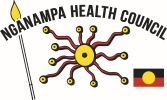Chlamydia prevalence rates over this time have decreased 63%, gonorrhoea rates have decreased 45%, and syphilis by 99%.
There has been a significant investment in defining the essential strategies that have led to this impact. Adequate testing and treatment, widespread reach of clinical services to the population during and outside of the annual screening time, and excellent case management are the core interventions that have led to this impact on prevalence rates.
The successes of this program have been widely recognised. This includes:
- Recognition in the Productivity Commission’s 2009 Overcoming Indigenous Disadvantage Report.
- Recognition in the interim report by the National Health and Hospital Reform Commission in 2008.
- Recognition in the Commonwealth Department of Health and Ageing’s Aboriginal and Torres Strait Islander Primary Health Care Review in 2004.
- Being awarded the "Medical Journal of Australia and Wyeth Australia Research Award" in 1999.
An important component of the program is the maintainance of data on testing, treatment and contact tracing of STIs including chlamydia, gonorrhoea, syphilis, HIV and trichomonas. This provides the basis for measuring the effectiveness of interventions and of case management of STIs. Cross-sectional data on chlamydia and gonorrhoea diagnoses obtained annually since 1996 provide an accurate comparison of prevalence over time in our geographical area.
Community wide STI screening is conducted annually. This screening targets all residents of the APY Lands aged between 14 – 40 years of age. This activity is supported by the community and our screening rates of the target population are generally over 70%.
Free condom distribution has, over many years, been facilitated through condom dispensers located in both large and smaller communities across the APY Lands.
Provision of appropriate equipment to prevent blood-borne virus transmission occurs in the ceremonial season through Anangu Ceremonial Workers as part of the Safe Ceremonies Strategy.
The program supports visits by a hepatologist funded by the Rural Doctors Workfore Agency.
Listen to the song "Take Your Shield to Town" by Ushma Scales.



